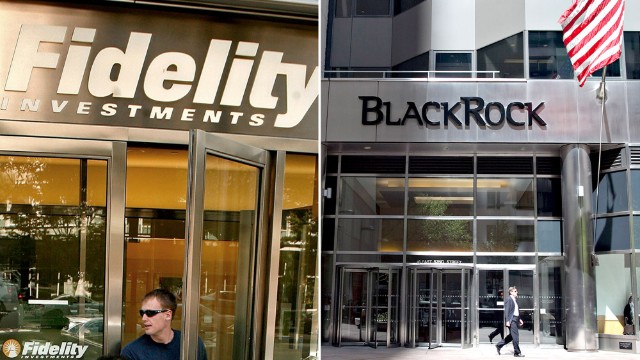Bitcoin exchange-traded funds (ETFs) have become a substantial component of BlackRock’s and Fidelity’s ETF inflows this year. According to Bloomberg ETF analyst Eric Balchunas, BlackRock’s iShares Bitcoin Trust (IBIT) and Fidelity’s Wise Origin Bitcoin Fund (FBTC) represent 26% and 56% of their respective total ETF inflows in 2024.
Major Bitcoin ETF Inflows
Since their launch nearly five months ago, BlackRock’s IBIT has garnered $16.6 billion in inflows, while Fidelity’s FBTC has seen $8.9 billion, according to data from Farside Investor. Despite these impressive figures, Vanguard remains the leading ETF asset manager with a staggering $102.8 billion in total ETF inflows for 2024, significantly outpacing BlackRock’s $65.1 billion.
ETF Landscape and Market Share
BlackRock offers a diverse portfolio with 429 ETFs, managing a total of $2.8 trillion in assets. Fidelity, in contrast, lists 70 ETFs, which collectively manage $74 billion in assets. Meanwhile, Invesco has recorded $34.7 billion in ETF flows this year, though only 0.9% of this comes from its Bitcoin ETF, totaling $317.3 million in inflows.
Also Read: Crypto Exchanges See $3B Ethereum Exit Post ETF Approvals
Competition and Market Dynamics
On May 28, BlackRock’s IBIT surpassed the Grayscale Bitcoin Trust (GBTC) to become the world’s largest spot Bitcoin ETF, holding 291,567 BTC valued at over $20 billion. Grayscale initially held 620,000 BTC but has experienced significant outflows, now holding 285,139 BTC worth approximately $19.6 billion.
Market Trends and Performance
While Bitcoin ETF flows have recently stabilized, with several issuers recording days of zero inflows and outflows, the overall market remains active. For example, the Franklin Bitcoin ETF (EZBC) hasn’t seen any activity since May 16, according to Farside Investors. However, non-Grayscale Bitcoin investment products continue to attract an average of $141.7 million in daily inflows, predominantly driven by IBIT, FBTC, and the ARK 21Shares Bitcoin ETF (ARKB).
